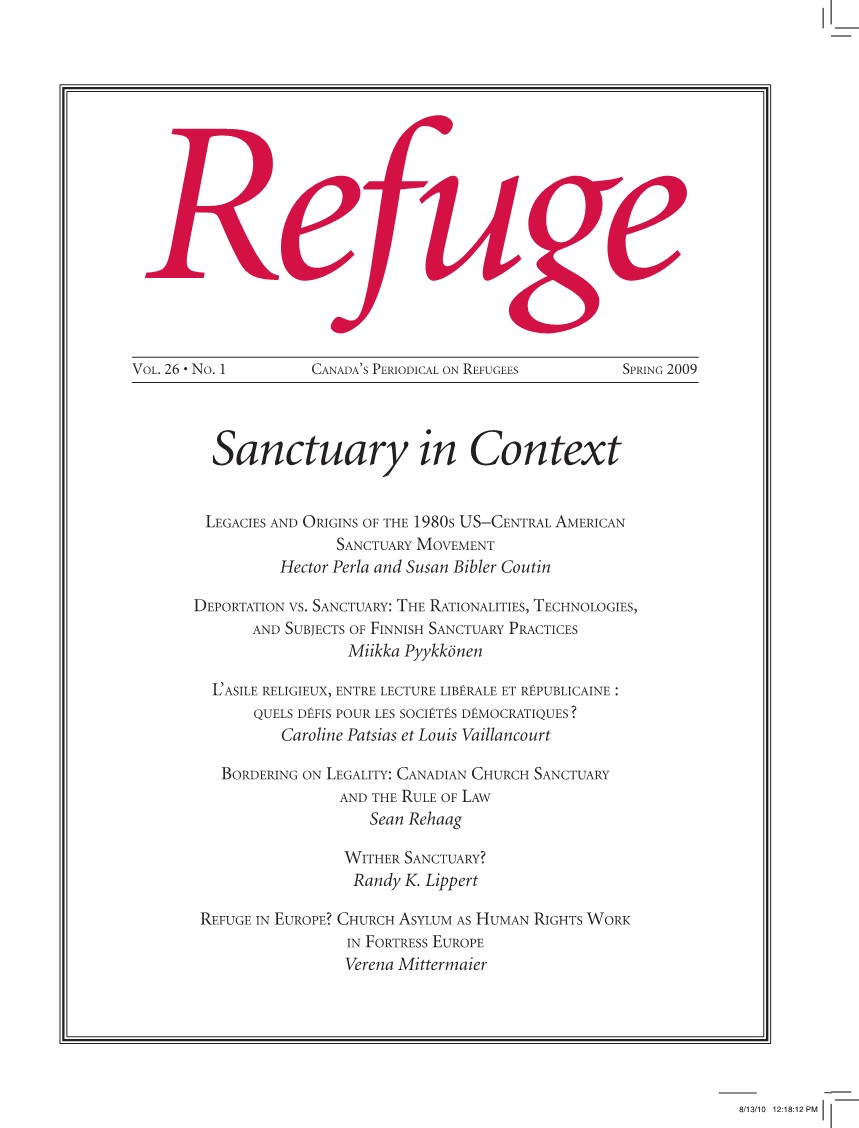Responses to Internal Displacement in Colombia: Guided by What Principles?
DOI:
https://doi.org/10.25071/1920-7336.30613Keywords:
Colombia, internal displacement, law, depoliticization, UN Guiding PrinciplesAbstract
This article aims to explain the gap between IDP law and practice in Colombia. Colombia’s IDP legislation is considered one of the world’s most advanced legal systems as it puts in practice the UN Guiding Principles on Internal Displacement. However, the reality of life for IDPs in Colombia does not match their legal rights. Especially the sections of the law related to preventing displacement and providing durable solutions for IDPs are poorly implemented. Following Ferguson’s work on depoliticization, we argue that displacement in Colombia is treated as a technical rather than political problem, detaching it from root causes like landownership and structural class inequalities. This article provides an overview of the root causes and analyzes the different methods through which internal displacement is “depoliticized” in Colombia. In conclusion, we will discuss the wider implications of the Colombian case for understanding implementation challenges of the Guiding Principles.
Metrics
Downloads
Published
How to Cite
Issue
Section
License
Copyright (c) 2010 Ellen Fadnes, Cindy Horst

This work is licensed under a Creative Commons Attribution-NonCommercial 4.0 International License.
Refuge authors retain the copyright over their work, and license it to the general public under the Creative Commons Attribution-Non Commercial License International (CC BY-NC 4.0). This license allows for non-commercial use, reproduction and adaption of the material in any medium or format, with proper attribution. For general information on Creative Commons licences, visit the Creative Commons site. For the CC BY-NC 4.0 license, review the human readable summary.







